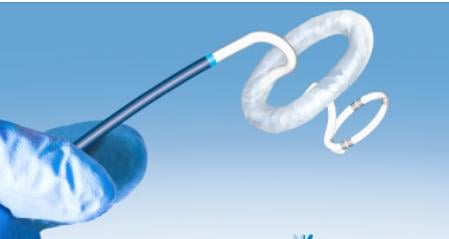
August 9, 2021 — Adagio Medical Inc., a provider of catheter ablation technologies for atrial fibrillation (AF) and ventricular tachycardia (VT), announced the results of its CryoCure-2 ultra-low temperature cryoablation (ULTC) prospective multi-center study in patients with AF at the 2021 Heart Rhythm Society (HRS) annual meeting. The trial examined the safety and efficacy of the Adagio Continuous Lesion Ablation System (iCLAS).
The presentation was delivered by Tom De Potter, M.D., associate director, Cardiovascular Center Department of Cardiology, Electrophysiology Section at the Cardiovascular Center OLV Hospital, Aalst, Belgium, on behalf of the CryoCure-2 investigators. The study enrolled 79 patients of which 45 patients had persistent AF with average duration of more than three years from first diagnosis. At 12 months, freedom from AF after a single procedure was 82%, with 1.5% procedural complications rate when using newer generations of ULTC technology. In persistent AF patients, freedom from AF was 85%.
“We are pleased to see that a complete persistent AF ablation performed in the electrophysiology (EP) lab by one electrophysiologist using only one catheter achieves outcomes superior to more logistically complex procedures,” De Potter said.
“The CE-mark approved iCLAS cryoablation system is commercial in Europe and is also part of an ongoing FDA IDE trial in the U.S. (NCT # 04061603) for persistent AF,” said Olav Bergheim, President and CEO of Adagio Medical. “ULTC is a platform technology which serves as a foundation for Adagio’s broader product portfolio. We have recently announced the initiation of the study in patients with monomorphic VT and are actively pursuing pulsed field cryo-ablation (PFCA), which combines ULTC and pulsed field ablation (PFA) technologies.”
“There is a unique, physiologic synergy between ultra-low temperature cryoablation and pulsed field ablation,” said Atul Verma, M.D., FRCPC, director of arrhythmia services at Southlake Regional Health Centre, Newmarket, Ontario, Canada, and an Associate Professor at University of Toronto. “Adagio’s technology allows the combination of these two modalities using a single catheter and console system. At this HRS meeting, we reported early pre-clinical data suggesting that PFCA can be done without generating microbubbles or skeletal muscle contractions compared to more conventional PFA, even at much higher energy levels. The Adagio approach may further improve the safety and efficacy of the ongoing PFA developments.”
Adagio’s PFCA system is currently under development and is expected to enter a first-in-human study later this year.
For more information: https://adagiomedical.com
Find additional HRS 2021 late breaking trials
Find more HRS 2021 conference news


 February 06, 2026
February 06, 2026 









